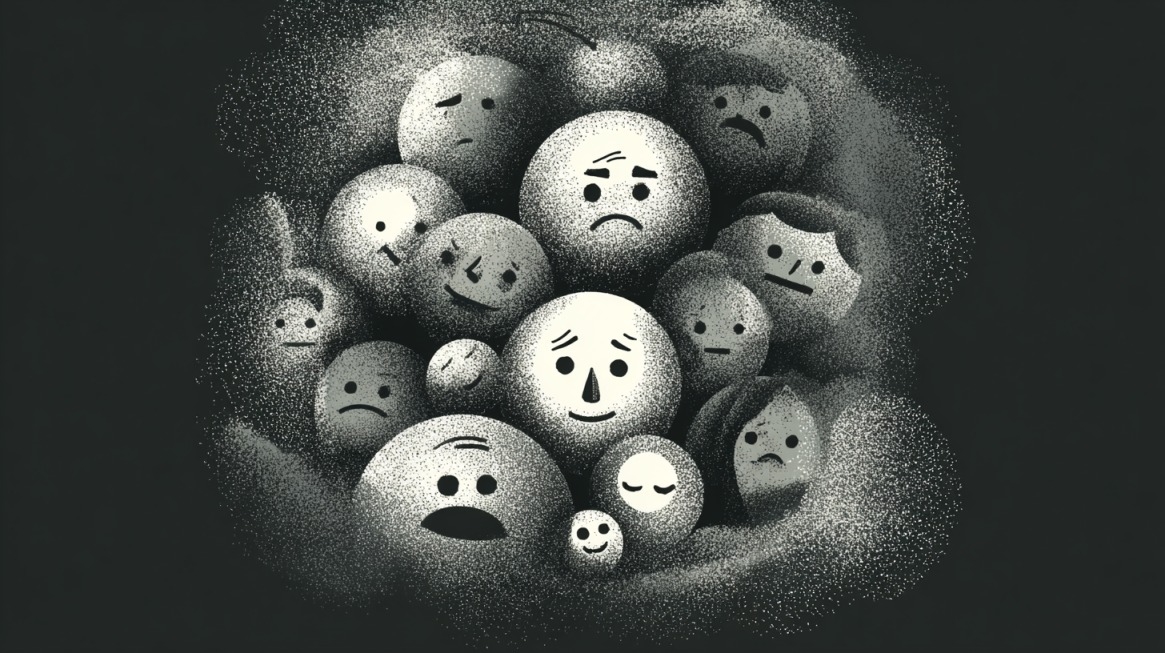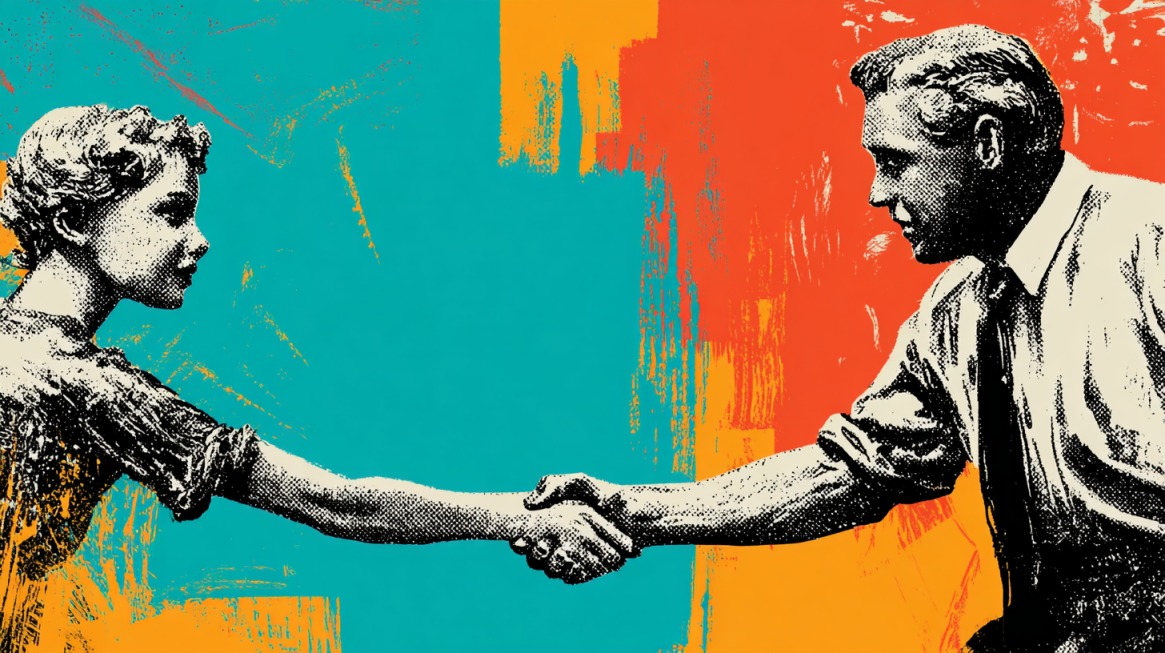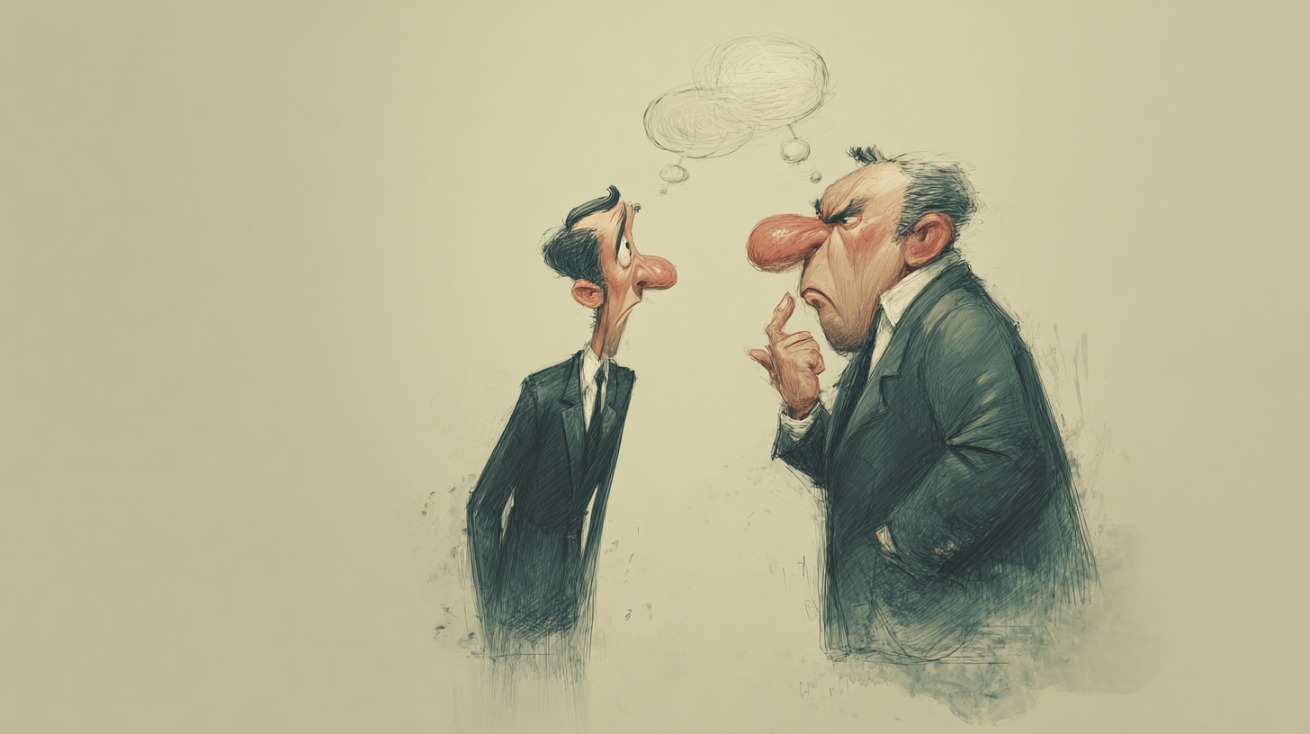Describing personality plays an essential role in communication, personal development, and professional success.
Knowing how to express personality traits helps in social situations, interviews, and writing contexts where character portrayal matters.
Personality traits reveal much about how a person behaves, what they value, and how they view the world.
Let’s take a look at these words.
1. Optimistic – Sees the good in situations.

“Even when we lost the deal, Sarah stayed optimistic and encouraged the team.”
Optimism is a mindset centered around hope and possibility, with the use of beautiful words.
Optimistic people believe that setbacks are temporary and that improvement is always achievable.
They bring energy and positivity into difficult environments, helping others stay calm and focused.
An optimistic attitude encourages perseverance and fosters innovation because people who expect success are more willing to take calculated risks.
Colleagues often rely on optimistic individuals to motivate teams when morale drops, as they view obstacles as opportunities rather than roadblocks.
2. Empathetic – Understands and feels others’ emotions.

“As a manager, he’s very empathetic to team concerns.”
Empathy allows a person to truly connect with others by understanding their emotional experiences.
An empathetic individual doesn’t just sympathize; they listen actively and respond with care.
This quality is vital in leadership, counseling, and teamwork because it strengthens trust and cooperation.
People with empathy can navigate sensitive conversations without causing offense and often serve as peacemakers in conflicts.
Empathy creates an atmosphere where others feel heard, valued, and understood, making it essential for strong interpersonal relationships.
3. Reliable – Dependable and consistent.

“You can always count on John; he’s incredibly reliable.”
Reliability means following through on commitments, big or small.
Reliable people build reputations for trustworthiness, which makes them invaluable in both professional and personal settings.
They meet deadlines, keep promises, and perform tasks with steady consistency.
Such individuals are often the backbone of teams, as others know they can depend on them without worry.
Reliability reflects maturity, accountability, and respect for others’ time and expectations, ensuring smooth collaboration and long-term success.
4. Adaptable – Adjusts easily to change.

“With every company restructure, she remains adaptable.”
Adaptability reflects an open mind and readiness to face evolving situations.
Adaptable individuals handle change with grace, adjusting strategies or behaviors when circumstances shift.
They are not easily frustrated by unexpected challenges but instead see them as learning opportunities.
In fast-paced environments, adaptability promotes stability because flexible people keep operations moving even during transitions.
5. Creative – Thinks outside the box.

“His creative approach brought a fresh perspective to the marketing campaign.”
Creativity involves innovation and the courage to approach problems differently.
Creative people thrive on brainstorming and experimenting with new methods, often transforming ordinary ideas into exceptional outcomes.
Their imagination stimulates growth in organizations that value original thinking.
Creativity applies to technology, communication, and problem-solving as well.
6. Resilient – Bounces back from challenges.

“Despite setbacks, she remained resilient and kept going.”
Resilience reflects mental strength and perseverance during adversity.
Resilient people experience hardship like anyone else but respond with determination rather than defeat.
They recover quickly, learn valuable lessons, and adapt strategies to move forward.
This trait builds character, fostering patience and emotional control.
Resilient individuals are often admired for their courage, serving as examples to those struggling to overcome personal or professional challenges.
7. Assertive – States opinions confidently and respectfully.

“He’s assertive in meetings without coming off as aggressive.”
Assertiveness combines confidence with respect. Assertive individuals communicate their needs clearly, set boundaries, and stand up for themselves without disrespecting others.
This balance promotes healthy interactions and prevents misunderstandings.
In workplaces, assertive employees contribute ideas openly and handle conflicts effectively, ensuring productivity and fairness.
Assertiveness also reflects self-awareness, as people who practice it recognize both their worth and the rights of others.
8. Confident – Believes in themselves.

“Her confident presentation impressed the entire panel.”
Confidence represents belief in one’s abilities and decisions. Confident people inspire trust and often become natural leaders because they project calm assurance.
Their self-esteem enables them to face criticism constructively rather than defensively.
Confidence also boosts performance; individuals who believe they can succeed are more likely to take action and reach their goals.
Maintaining confidence requires preparation, reflection, and experience, all of which strengthen personal and professional presence.
9. Tenacious – Determined and persistent.

“He was tenacious in pursuing the grant despite multiple rejections.”
Tenacity reflects a relentless drive to achieve goals despite setbacks.
Tenacious people refuse to give up easily, channeling determination into continuous effort.
They handle rejection as part of progress, adjusting strategies until success is achieved.
This quality is often seen in entrepreneurs, researchers, and athletes who must endure repeated challenges.
Tenacity demonstrates passion, discipline, and resilience, all traits that contribute to meaningful accomplishment and growth.
10. Strategic – Thinks ahead with planning and insight.

“His strategic thinking helped the team meet all its targets.”
Strategic individuals excel in long-term planning.
They analyze situations, anticipate outcomes, and craft well-organized approaches to reach objectives efficiently.
Such thinkers understand how short-term actions influence future results, allowing them to make informed, impactful decisions.
Being strategic also involves adaptability, as plans may need to shift based on evolving information.
People with this mindset often succeed in leadership, project management, and problem-solving roles due to their foresight and critical thinking.
11. Friendly – Approachable and kind.

“She’s very friendly with new employees and helps them settle in.”
Friendliness creates a sense of warmth and approachability.
Friendly people make others feel welcome, fostering a supportive atmosphere in workplaces, schools, or communities. Their open demeanor encourages collaboration and reduces tension.
Friendliness doesn’t require extroversion.
It’s about showing genuine interest and kindness toward others.
Those who embody this trait often serve as connectors, bringing people together and strengthening relationships across groups.
12. Generous – Willing to share and give.

“He’s generous with his time and often volunteers.”
Generosity extends far beyond material giving; it represents a spirit of kindness and selflessness.
Generous individuals willingly share time, knowledge, or resources to help others succeed.
They often engage in volunteer work, mentorship, or acts of service that create positive change.
Generosity builds trust and goodwill, strengthening both personal and professional networks.
It reflects gratitude, compassion, and an awareness of how one’s actions can uplift others.
13. Respectful – Treats others with dignity.

“Even in debates, she remains respectful of others’ views.”
Respect involves valuing others’ opinions and boundaries.
Respectful individuals listen attentively, acknowledge differences, and communicate with courtesy.
This quality fosters harmony and collaboration, even among people with opposing perspectives.
Respect builds credibility and demonstrates emotional maturity.
In workplaces and relationships, respect strengthens communication and creates an atmosphere of fairness and mutual regard.
14. Considerate – Thinks about others’ needs.

“He’s considerate, always offering help when someone’s struggling.”
Consideration means being attentive to how actions affect others.
Considerate people anticipate needs and act thoughtfully, often going out of their way to assist or comfort someone.
They balance assertiveness with empathy, ensuring that their decisions promote collective well-being.
In daily life, consideration appears in small gestures, listening patiently, offering support, or respecting personal space, which make a big difference in social harmony.
15. Altruistic – Puts others before themselves.

“Her altruistic nature led her to work for a nonprofit.”
Altruism embodies selfless concern for others’ welfare.
Altruistic individuals act without expecting recognition or reward, driven by genuine compassion.
Their choices often prioritize community benefit or humanitarian causes.
Altruism fosters generosity and kindness, creating positive ripple effects that inspire others to give back.
Such individuals often find fulfillment in helping others and contributing to collective progress.
16. Selfish – Thinks only of themselves.

“He was too selfish to share the prize fairly.”
Selfishness reflects excessive self-interest and disregard for others’ needs.
Self-centered individuals may achieve short-term gains but often damage long-term relationships.
This behavior creates resentment and mistrust, as others feel undervalued or exploited.
Overcoming selfish tendencies requires empathy and awareness of how personal actions affect others.
Acknowledging and addressing selfish habits can improve relationships and emotional growth.
17. Rude – Lacks manners or politeness.

“She was rude to the waiter for no reason.”
Rudeness shows a lack of courtesy and social awareness.
People who behave rudely often disrupt harmony and alienate those around them.
Such behavior can stem from frustration, arrogance, or disregard for norms.
While occasional rudeness may occur under stress, consistent discourtesy reflects poor emotional regulation.
Politeness and patience, in contrast, strengthen communication and mutual respect.
Read more: Find out what words people hate the most, and should you avoid them at all costs!
18. Unreliable – Cannot be depended on.

“He’s unreliable and often misses deadlines.”
Unreliability damages trust and credibility.
Individuals with this trait fail to meet responsibilities, causing frustration for those who depend on them.
Being unreliable can hinder career advancement and strain relationships.
Improvement begins with accountability, keeping promises, organizing priorities, and communicating honestly.
Dependability enhances reputation and fosters cooperation.
19. Cynical – Distrustful of motives.

“Her cynical view made collaboration difficult.”
Cynicism often arises from disappointment or past betrayal.
Cynical individuals assume others act out of self-interest, which limits cooperation and positivity.
While skepticism can encourage caution, excessive cynicism breeds negativity and isolation.
Balancing realism with openness helps prevent cynicism from becoming destructive.
Encouraging trust and giving others the benefit of the doubt can lead to more rewarding interactions.
20. Jealous – Resentful of others’ success.

“He was clearly jealous of his colleague’s promotion.”
Jealousy stems from comparison and insecurity.
Jealous individuals struggle to celebrate others’ achievements, focusing instead on what they lack.
This mindset can create bitterness and tension. Transforming jealousy into inspiration requires self-reflection and gratitude.
Final Thoughts
Describing personality helps communicate more effectively and encourages self-awareness.
Using the right words to express traits can make interactions, storytelling, and job interviews more meaningful.
Reflecting on one’s personal traits also supports growth and emotional intelligence.
Keeping a personal list or journal of these words can help track changes in personality and provide insights into personal development.

